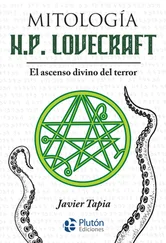“How do you like that?” Captain Kontoulis asked.
“I’ve seen enough torches to last the rest of my life,” said Lefty.
But Desdemona, for once, was more optimistic. “At least it’s a woman,” she said. “Maybe here people won’t be killing each other every single day.”
HENRY FORD’S ENGLISH-LANGUAGE MELTING POT
Everyone who builds a factory builds a temple.
—Calvin Coolidge
Detroit was always made of wheels. Long before the Big Three and the nickname “Motor City”; before the auto factories and the freighters and the pink, chemical nights; before anyone had necked in a Thunderbird or spooned in a Model T; previous to the day a young Henry Ford knocked down his workshop wall because, in devising his “quadricycle,” he’d thought of everything but how to get the damn thing out; and nearly a century prior to the cold March night, in 1896, when Charles King tiller-steered his horseless carriage down St. Antoine, along Jefferson, and up Woodward Avenue (where the two-stroke engine promptly quit); way, way back, when the city was just a piece of stolen Indian land located on the strait from which it got its name, a fort fought over by the British and French until, wearing them out, it fell into the hands of the Americans; way back then, before cars and cloverleaves, Detroit was made of wheels.
I am nine years old and holding my father’s meaty, sweaty hand. We are standing at a window on the top floor of the Pontchartrain Hotel. I have come downtown for our annual lunch date. I am wearing a miniskirt and fuschia tights. A white patent leather purse hangs on a long strap from my shoulder.
The fogged window has spots on it. We are way up high. I’m going to order shrimp scampi in a minute.
The reason for my father’s hand perspiration: he’s afraid of heights. Two days ago, when he offered to take me wherever I wanted, I called out in my piping voice, “Top of the Pontch!” High above the city, amid the business lunchers and power brokers, was where I wanted to be. And Milton has been true to his promise. Despite racing pulse he has allowed the maître d’ to give us a table next to the window; so that now here we are—as a tuxedoed waiter pulls out my chair—and my father, too frightened to sit, begins a history lesson instead.
What’s the reason for studying history? To understand the present or avoid it? Milton, olive complexion turning a shade pale, only says, “Look. See the wheel?”
And now I squint. Oblivious, at nine, to the prospect of crow’s-feet, I gaze out over downtown, down to the streets where my father is indicating (though not looking). And there it is: half a hubcap of city plaza, with the spokes of Bagley, Washington, Woodward, Broadway, and Madison radiating from it.
That’s all that remains of the famous Woodward Plan. Drawn up in 1807 by the hard-drinking, eponymous judge. (Two years earlier, in 1805, the city had burned to the ground, the timber houses and ribbon farms of the settlement founded by Cadillac in 1701 going up in the span of three hours. And, in 1969, with my sharp vision, I can read the traces of that fire on the city’s flag a half mile away in Grand Circus Park: Speramus meliora; resurget cineribus. “We hope for better things; it will rise from the ashes.”)
Judge Woodward envisioned the new Detroit as an urban Arcadia of interlocking hexagons. Each wheel was to be separate yet united, in accordance with the young nation’s federalism, as well as classically symmetrical, in accordance with Jeffersonian aesthetics. This dream never quite came to be. Planning is for the world’s great cities, for Paris, London, and Rome, for cities dedicated, at some level, to culture. Detroit, on the other hand, was an American city and therefore dedicated to money, and so design had given way to expediency. Since 1818, the city had spread out along the river, warehouse by warehouse, factory by factory. Judge Woodward’s wheels had been squashed, bisected, pressed into the usual rectangles.
Or seen another way (from a rooftop restaurant): the wheels hadn’t vanished at all, they’d only changed form. By 1900 Detroit was the leading manufacturer of carriages and wagons. By 1922, when my grandparents arrived, Detroit made other spinning things, too: marine engines, bicycles, handrolled cigars. And yes, finally: cars.
All this was visible from the train. Approaching along the shore of the Detroit River, Lefty and Desdemona watched their new home take shape. They saw farmland give way to fenced lots and cobblestone streets. The sky darkened with smoke. Buildings flew by, brick warehouses painted in pragmatic Bookman white:WRIGHT AND KAY CO. . . . J. H. BLACK & SONS . . . DETROIT STOVE WORKS. Out on the water, squat, tar-colored barges dragged along, and people popped up on the streets, workmen in grimy overalls, clerks thumbing suspenders, the signs of eateries and boardinghouses appearing next:We Serve Stroh’s Temperance Beer . . . Make This Your Home Meals 15 cents . . .
. . . As these new sights flooded my grandparents’ brains, they jostled with images from the day before. Ellis Island, rising like a Doge’s Palace on the water. The Baggage Room stacked to the ceiling with luggage. They’d been herded up a stairway to the Registry Room. Pinned with numbers from the Giulia ’s manifest, they’d filed past a line of health inspectors who’d looked in their eyes and ears, rubbed their scalps, and flipped their eyelids inside out with buttonhooks. One doctor, noticing inflammation under Dr. Philobosian’s eyelids, had stopped the examination and chalked an Xon his coat. He was led out of line. My grandparents hadn’t seen him again. “He must have caught something on the boat,” Desdemona said. “Or his eyes were red from all that crying.” Meanwhile, chalk continued to do its work all around them. It marked a Pgon the belly of a pregnant woman. It scrawled an Hover an old man’s failing heart. It diagnosed the Cof conjunctivitis, the Fof favus, and the Tof trachoma. But, no matter how well trained, medical eyes couldn’t spot a recessive mutation hiding out on a fifth chromosome. Fingers couldn’t feel it. Buttonhooks couldn’t bring it to light . . .
Now, on the train, my grandparents were tagged not with manifest numbers but with destination cards: “To the Conductor: Please show bearer where to change and where to get off, as this person does not speak English. Bearer is bound to: Grand Trunk Sta. Detroit.” They sat next to each other in unreserved seats. Lefty faced the window, looking out with excitement. Desdemona stared down at her silkworm box, her cheeks crimson with the shame and fury she’d been suffering for the last thirty-six hours.
“That’s the last time anyone cuts my hair,” she said.
“You look fine,” said Lefty, not looking. “You look like an Amerikanidha .”
“I don’t want to look like an Amerikanidha .”
In the concessions area at Ellis Island, Lefty had cajoled Desdemona to step into a tent run by the YWCA. She’d gone in, shawled and kerchiefed, and had emerged fifteen minutes later in a dropwaisted dress and a floppy hat shaped like a chamber pot. Rage flamed beneath her new face powder. As part of the makeover, the YWCA ladies had cut off Desdemona’s immigrant braids.
Obsessively, in the way a person worries a rip deep in a pocket, she now reached up under the floppy hat to feel her denuded scalp for the thirtieth or fortieth time. “That’s the last haircut,” she said again. (She was true to this vow. From that day on, Desdemona grew her hair out like Lady Godiva, keeping it under a net in an enormous mass and washing it every Friday; and only after Lefty died did she ever cut it, giving it to Sophie Sassoon, who sold it for two hundred and fifty dollars to a wigmaker who made five separate wigs out of it, one of which, she claimed, was later bought by Betty Ford, post White House and rehab, so that we got to see it on television once, during Richard Nixon’s funeral, my grandmother’s hair, sitting on the ex-President’s wife’s head.)
Читать дальше
Конец ознакомительного отрывка
Купить книгу












